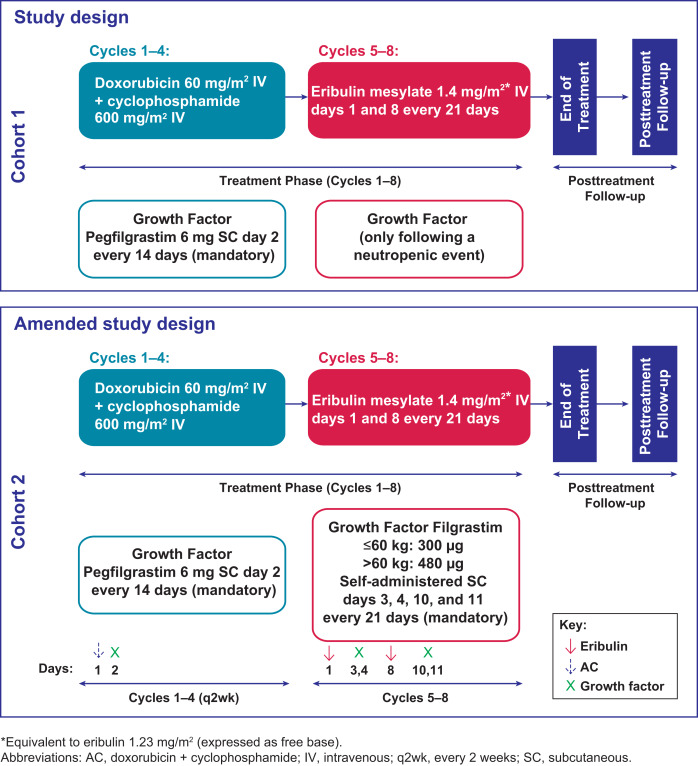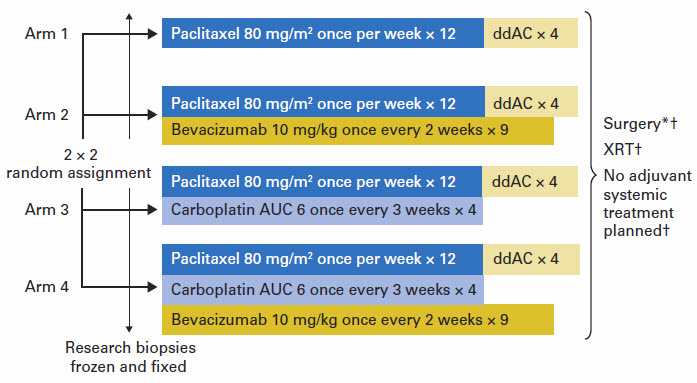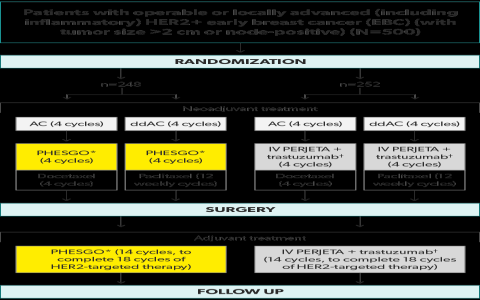Well, let me tell ya, there’s a lotta talk about this thing called “dose dense” treatment when it comes to breast cancer. Now, ya might be wonderin’ what that means exactly. Let me break it down for ya in simple words. When we say “dose dense” for drugs like doxorubicin and cyclophosphamide, what we’re really talkin’ about is givin’ them more often, but in smaller amounts each time. It’s kinda like takin’ a little bit of medicine more frequently, instead of takin’ a big ol’ dose all at once.
Now, ya might ask, why do we do that? Well, the idea is that givin’ these drugs in a dose-dense way might help fight cancer better. See, doxorubicin and cyclophosphamide are both chemotherapy drugs, and they work by messin’ with the cancer cells’ ability to grow and divide. Doxorubicin works by stoppin’ a little enzyme inside the cancer cells that helps them divide. Without that enzyme, the cancer cells can’t keep growin’ like they’re supposed to, and eventually, they die off. Cyclophosphamide works in a similar way, but it also messes up the DNA inside those cancer cells, makin’ it harder for ’em to reproduce.
These two drugs, when used together, are usually called “AC” in the cancer world. AC stands for Doxorubicin and Cyclophosphamide. Now, regular ol’ AC treatment is usually done every 3 weeks, but with dose-dense AC (or ddAC), they shorten that to every two weeks. The idea behind that is to keep the pressure on the cancer, not giving it any time to start growin’ back before the next round of treatment hits it. It’s kinda like tryin’ to put out a fire before it can catch back up again.
But let me tell ya, there’s a lotta studies goin’ on about whether this dose-dense approach works better than the regular treatment. Some studies have shown that ddAC works just as well, if not better, for certain types of breast cancer. For example, folks with triple-negative breast cancer (TNBC), which is a tough one to treat, might benefit from ddAC. Some studies say that dose-dense treatment helps these patients by makin’ the chemotherapy more effective. Other studies have shown that giving the chemotherapy more often might also help keep the cancer from comin’ back after surgery.

Now, when it comes to breast cancer, especially for those with HER2-negative or HER2-low cancers, doctors might use ddAC along with other treatments. For example, one regimen that’s been used is called “AC-T,” which is AC followed by Taxol. This combination is meant to hit the cancer from different angles. And there’s also something called the KEYNOTE-522 regimen, which uses pembrolizumab along with AC. Pembrolizumab is an immune therapy that helps the body’s own immune system go after the cancer cells.
But it’s not all sunshine and rainbows. There are side effects with this treatment, just like with any other chemotherapy. Folks can feel pretty rough during and after the treatment, with things like nausea, hair loss, and tiredness. But, ya gotta weigh the pros and cons. If this dose-dense approach can help keep cancer from comin’ back, then it might be worth it, even if it makes ya feel bad for a little while.
It’s also important to know that not every patient with breast cancer is the same. What works for one person might not work for another. Doctors gotta look at the individual’s health, the type of cancer they have, and how they respond to treatment when deciding what’s best for them.
All in all, ddAC is one of the options that doctors have in their toolbox when treatin’ breast cancer, and it’s been shown to work for some folks. But just like with any treatment, there’s always a bit of a gamble. Ya never really know exactly how it’s gonna work out for ya, but doctors sure do their best to make sure you get the treatment that’s right for you.
If you or someone you know is goin’ through breast cancer treatment, make sure to talk to your doctor about all the options, and ask ’em about the pros and cons of dose-dense chemotherapy. Ya gotta make sure you understand what’s goin’ on so ya can make the best choice for your health.

Tags:[breast cancer, dose dense, doxorubicin, cyclophosphamide, chemotherapy, triple negative breast cancer, cancer treatment, AC regimen, pembrolizumab, HER2-negative]









